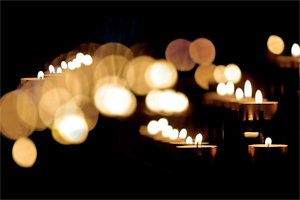Jim Geraghty is on a roll this morning looking at the truth behind the Iowa caucus numbers and why they should be no more relevant than any other small state. I can understand the sentiment because I know many gun owners never felt like they had a say in the GOP nominating process in 2008 once some contenders dropped out after fairly early primary runs. With the ups and downs of various candidates in the last few weeks, it’s a shame Tim Pawlenty called it quits after a freakin’ straw poll.
Putting aside the quirkiness of Iowa, caucuses are an awful method for picking candidates for a variety of reasons — suddenly the secret ballot doesn’t matter anymore? — and high among them is low participation. The turnout at the 2008 Iowa GOP caucus: 119,000. Turnout at the 2000 caucus: 87,000. Turnout in 1996: About 96,000. Turnout in 1988: About 109,000.
Turnout has never surpassed 23 percent of all eligible Republicans, and even that low threshold was last met back in 1988. The GOP frontrunner is determined by a group roughly the size of the crowd at a University of Michigan football game. If the Iowa caucus turnout matches its 2008 level (though it could be higher), it will equal 16 percent of the average population of one congressional district.
At least in primaries, many more Republicans (and in open primaries, independents) get to weigh in. In 2008, 234,000 Republicans and independents voted in New Hampshire, and 445,000 Republicans and independents voted in South Carolina.
In his morning newsletter, he also notes that a certain segment of the few caucus-goers will make up their mind based on these last minute polls released showing candidates they like not doing so well or candidates they hate doing too well. This is particularly relevant as some may be responding to the perceived swell of Ron Paul support and flocking to Romney out of fear of a Paul win. That’s the same kind of motivation that drove some states to vote for Huckabee in 2008 – he was the only alternative to McCain at a certain point in the game. It didn’t mean those states actually like Huckabee, they just didn’t want to vote for McCain.
UPDATE: Someone questioned what an ideal map would look like for Geraghty, and he responds with a plan that sounds quite feasible. My only issue is that he left Oklahoma off the calendar.

